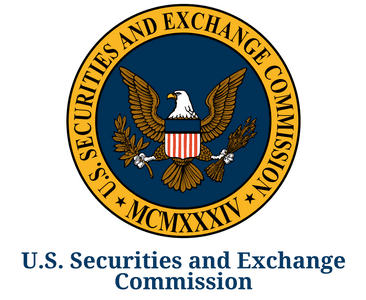
Why a Class Action Lawsuit Against Red Rock Secured is Unlikely to Succeed – And How to Protect Yourself From Similar Scams in the Gold IRA Industry
 Bullion.Directory’s Ask Ally Service
Bullion.Directory’s Ask Ally Service
By Alison Macdonald
Commercial Editor at Bullion.Directory
In a change to my usual Ask Ally answers, today I’m writing in response to a large number of emails I’ve received from ex-Red Rock Secured customers who have been left financially damaged just at a time when they will need their savings the most: retirement.
As Bullion.Directory has already covered extensively, in recent years, the Gold IRA industry has been rocked by a series of high-profile fraud cases that have left many investors feeling betrayed and uncertain.
In our current geopolitical climate, the growing need for financially secure and protected retirement savings, has quite rightly led many investors to the safe haven and proven market hedge of physical precious metals.
It has unfortunately, also attracted a number of unscrupulous actors looking to exploit unwary Americans seeking to protect their financial future – in a market that’s largely unregulated and where lack of knowledge can see investors lose vast sums to inflated prices, fees and commissions.
The most notable cases in the past few years have involved Red Rock Secured and Regal Assets.
These companies, once trusted names in the Gold IRA market, have both faced serious allegations of fraud and misconduct, resulting in significant financial losses for their clients.
 The U.S. Securities and Exchange Commission (SEC) and other regulatory bodies have taken decisive action against these firms, and yet for many affected investors, the road to recovery is far from clear.
The U.S. Securities and Exchange Commission (SEC) and other regulatory bodies have taken decisive action against these firms, and yet for many affected investors, the road to recovery is far from clear.
The most common subject in the emails I’ve been receiving focus around calls for class action lawsuits – with defrauded investors desperately looking for ways to get back some of their lost investments.
However it’s crucial to understand why such legal actions may not always yield the desired results.
Today I’m going to specifically focus on the challenges of pursuing class action lawsuits against defunct or insolvent companies – like Red Rock Secured.
Most importantly, I offer some practical advice on how to better safeguard your investments from falling into the hands of similar fraudulent schemes in future.
Yes, I know that for many this is a case of locking the stable door after the horse has bolted – but if I can save even one person from making a life-changing financial mistake, then for me, it’s something worth saying.
Background on the Red Rock Secured Case

The Red Rock Secured Website
Based in Southern California, the company promoted itself as a trusted partner for investors seeking to protect their financial futures against market volatility and economic downturns.
Over the years, Red Rock Secured built a significant client base by appealing to those wary of traditional financial institutions and eager to invest in something perceived as more stable—physical gold.
As with most gold companies there were a few complaints on the usual consumer rating sites, but overall their ratings were high and trust signals pointed to this being a great company to work with.
Indeed, our annual public vote once had Red Rock Secured shortlisted to be Bullion Dealer of the Year…
An Investor Complaint Deluge
 Behind this veneer of trust and security, serious issues were unfortunately brewing. A number of investors began to raise alarms about questionable practices by Red Rock Secured.
Behind this veneer of trust and security, serious issues were unfortunately brewing. A number of investors began to raise alarms about questionable practices by Red Rock Secured.
These complaints ranged from misleading sales tactics to outright fraud.
Many customers reported being coerced into purchasing overpriced coins and bullion, often under the guise of “special deals” or “limited-time offers” that, in reality, had little to no intrinsic value over that of gold.
These deceptive practices were often said to be accompanied by aggressive marketing and high-pressure sales techniques that preyed on individuals’ fears of financial instability.
Further investigation revealed that Red Rock Secured was engaging in activities that severely impacted its clients.
The company allegedly misrepresented the value of the investments and failed to disclose the substantial markup on the precious metals sold to customers.
Some investors found themselves locked into ‘rare’ coin investments that were worth significantly less than what they were led to believe, with few avenues for recourse.
The complaints eventually led to the involvement of the SEC.
The agency charged Red Rock Secured with defrauding investors through a series of deceptive practices, resulting in substantial financial losses for many individuals who had entrusted the company with their retirement savings.
SEC Action and Final Judgment
In response to this growing number of complaints and the mounting evidence of fraudulent activities, the U.S. Securities and Exchange Commission (SEC) stepped in to investigate Red Rock Secured.
The SEC’s investigation revealed that the company had engaged in a series of deceptive practices, including the misrepresentation of the value and safety of investments, and failing to disclose significant markups on precious metals.
These actions were found to be in clear violation of securities laws, designed to protect investors from such fraudulent schemes.
In May 2024, the SEC filed a formal complaint against Red Rock Secured and its key executives, alleging that they had defrauded investors through a range of dishonest practices.
According to the SEC’s litigation release, the company had systematically targeted investors who were particularly vulnerable — those who were nearing retirement or already retired and looking for a stable way to secure their financial future.
These individuals were in many cases said to have been persuaded to move their retirement funds into Gold IRAs managed by Red Rock Secured, based on false claims and deceptive sales tactics.
The Final Judgment and Its Implications
The SEC’s case against Red Rock Secured culminated in a Final Judgment, which was a significant legal milestone in addressing the fraudulent activities of the company.
The judgment mandated that Red Rock Secured and its executives were to cease all fraudulent activities immediately and comply with various sanctions, including financial penalties and restitution to defrauded investors.
However, the judgment and subsequent clarification from the SEC Office of Distribution, also highlighted a sobering reality for many of the affected investors: there was no distribution fund established for restitution.
This means that despite the SEC’s efforts to hold Red Rock Secured accountable, there was no pool of recovered assets available to compensate the victims of the fraud.
Furthermore, the SEC clarified that there was no timeline for any potential distribution to the affected investors, leaving many in a state of uncertainty regarding the possibility of recovering their lost investments.
The lack of a distribution fund typically occurs when a company’s assets are insufficient to cover the losses or when the assets have already been depleted.
In the case of Red Rock Secured, it appears that either the company was unable to pay or that any remaining funds were insufficient to warrant the creation of a distribution plan.
This outcome underscores the challenges faced by defrauded investors who hope to recover their money through regulatory actions or class action lawsuits when the offending company has been dismantled or declared insolvent.
The final judgment against Red Rock Secured should serve as a stark reminder of the limitations of legal recourse in cases of fraud, particularly when there are no substantial assets left to reclaim.
This is why the importance of investor due diligence and caution cannot be overemphasized if people are to protect themselves from falling victim to similar schemes in the future.
Understanding Class Action Lawsuits in Fraud Cases
 A class action lawsuit is a legal action filed by one or more plaintiffs on behalf of a larger group of people who are similarly affected.
A class action lawsuit is a legal action filed by one or more plaintiffs on behalf of a larger group of people who are similarly affected.
This type of lawsuit is particularly useful when a large number of individuals have suffered comparable harm from the same defendant’s actions, but where the damages suffered by each individual might be too small to justify individual lawsuits.
By consolidating all the claims into one action, a class action lawsuit enables the court system to efficiently handle numerous similar claims in a single proceeding. This legal mechanism also provides individuals who might not have the resources to sue on their own an opportunity to seek justice and compensation.
The primary purpose of a class action is twofold: to provide compensation to those harmed by the defendant’s actions and to deter the defendant and other potential wrongdoers from engaging in similar misconduct in the future.
When a class action is successful, it can result in significant financial settlements or judgments that not only compensate the victims but also send a strong message to others about the consequences of fraudulent or harmful behavior.
Class action lawsuits are most successful in cases where a large number of individuals have been affected by a common issue.
Typical scenarios include:
- Consumer Fraud: When a company engages in deceptive marketing practices or sells defective products that affect thousands or even millions of consumers.
- Securities Fraud: When a company or its executives mislead investors about the financial status of the company, resulting in losses when the truth comes out.
- Product Liability: When a defective product, such as a pharmaceutical drug or a car part, causes harm to a large group of people.
- Environmental Disasters: When an environmental disaster, like an oil spill or chemical leak, affects an entire community.
In these cases, class actions are often successful because the harm caused is widespread, the damages can be clearly demonstrated, and there are often sufficient assets available from the defendant to fund a settlement or judgment.
Why These Lawsuits May Not Succeed, Especially When a Company Is Dissolved or Bankrupt
 While class action lawsuits can be a powerful tool for justice, they do face significant challenges, particularly in cases of fraud where the offending company has been dissolved or declared bankrupt.
While class action lawsuits can be a powerful tool for justice, they do face significant challenges, particularly in cases of fraud where the offending company has been dissolved or declared bankrupt.
In these situations, even if a court rules in favor of the plaintiffs, there may be no practical way to enforce the judgment or obtain compensation.
When a company is dissolved or goes bankrupt, its assets are often liquidated to pay off creditors in a specific order of priority.
Secured creditors, such as banks or other financial institutions, are typically paid first.
Unsecured creditors, including consumers or investors who have been defrauded, are often last in line.
If the company’s remaining assets are insufficient to cover all debts, unsecured creditors may receive little to nothing.
Red Rock Secured’s Lack of Assets or Funds to Distribute to Victims
A fundamental challenge in class action lawsuits against fraudulent companies is the lack of assets or funds available to distribute to victims. Once a company is under investigation for fraud, it often means that the company’s financial health is already in jeopardy.
By the time a class action lawsuit reaches a settlement or judgment, the company may have no remaining assets.
This scenario is common in cases involving financial fraud, where the company’s business model may have relied on deceptive practices or where executives might have siphoned off funds before the legal actions took place.
In the case of Red Rock Secured, for instance, the SEC’s final judgment did not establish a distribution fund, indicating that there were likely no significant assets left to return to defrauded investors.
Without a pool of assets to draw from, any potential recovery for plaintiffs becomes virtually impossible.
This situation is compounded when the fraudulent activities have been ongoing for an extended period, further depleting the company’s resources.
The Complexities and Costs Involved in Pursuing a Class Action
Class action lawsuits are complex and expensive to pursue, involving numerous steps and requiring substantial legal resources.
These complexities include:
 Legal Fees and Costs: Class actions typically involve significant legal fees and costs, which must be covered either by the plaintiffs or by the law firms taking on the case. These costs can be particularly burdensome when the case is prolonged or involves substantial amounts of evidence and expert testimony.
Legal Fees and Costs: Class actions typically involve significant legal fees and costs, which must be covered either by the plaintiffs or by the law firms taking on the case. These costs can be particularly burdensome when the case is prolonged or involves substantial amounts of evidence and expert testimony.- Burden of Proof: In fraud cases, plaintiffs must prove that the defendant knowingly engaged in deceptive or fraudulent practices. This often requires a detailed examination of financial records, internal communications, and other evidence that can be costly and time-consuming to obtain.
- Certifying the Class: Before a class action can proceed, the court must certify that the group of plaintiffs constitutes a “class.” This involves proving that there are enough plaintiffs with similar claims and that a class action is the most efficient way to resolve those claims. The certification process itself can be a legal battleground, adding further time and expense.
- Appeals and Delays: Even if a class is certified and the plaintiffs win their case, defendants often appeal the decision. Appeals can drag on for years, delaying any potential payout and increasing legal costs for all parties involved.
Given these challenges, combined with the often limited resources of dissolved or bankrupt companies, the prospects for success in class action lawsuits against companies like Red Rock Secured are unfortunately slim.
For investors who have been defrauded, understanding these limitations is crucial when deciding how best to seek restitution and protect their future investments.
Why Recovery Is Difficult
When a company is dissolved or enters into liquidation, it signifies the end of its legal existence and the beginning of a process aimed at winding down its affairs.
Dissolution can happen voluntarily, where the company itself decides to cease operations, or involuntarily, such as through bankruptcy proceedings initiated by creditors or regulatory bodies.
In either case, the primary goal is to distribute the remaining assets of the company to its creditors and shareholders, according to a legally defined order of priority.
In the liquidation process, a liquidator or trustee is appointed to oversee the sale of the company’s assets. These assets can include tangible property like real estate and equipment, as well as intangible assets such as intellectual property or outstanding receivables.
The proceeds from the sale of these assets are then used to pay off the company’s debts, beginning with secured creditors who have legal claims to specific assets as collateral, followed by unsecured creditors.
Only after all debts are satisfied do any remaining funds get distributed to shareholders, which is a rare occurrence in cases of fraud or insolvency.
Why Victims Often Find It Hard to Recover Their Investments in Such Scenarios
For victims of fraud, the dissolution and liquidation of a company often mark the beginning of a long and challenging road to recovery, with several factors contributing to the difficulty.
Limited or No Remaining Assets:
By the time a company is dissolved, especially in cases of fraud, most of its valuable assets may have already been depleted or misappropriated.
The company’s executives or involved parties might have diverted funds or assets to personal accounts or hidden them in various ways, leaving little to no resources for restitution.
Priority of Claims:
In liquidation, claims are paid in a specific order of priority. Secured creditors, such as banks and financial institutions, are first in line because they have collateral backing their claims.
This often exhausts the available assets, leaving unsecured creditors, including defrauded investors, with little hope of recovery. Since most investors in cases like Red Rock Secured are unsecured creditors, their chances of seeing any return from liquidation are slim.
High Costs of Liquidation Process:
The liquidation process itself can be expensive. The fees for the appointed liquidator or trustee, legal costs, and administrative expenses can consume a substantial portion of any remaining assets. By the time these costs are covered, there may be little left for distribution to creditors or investors.
Lack of Transparency and Complexity:
The process of tracking down assets can be incredibly complex, especially if there has been fraud involved. Companies may operate through multiple subsidiaries or shell companies, making it difficult for liquidators and investors to follow the money trail.
This lack of transparency further complicates the recovery process.
Legal and Time Barriers:
Legal proceedings related to dissolution and liquidation can drag on for years, further diminishing the hope for recovery. Additionally, there are often time limits on filing claims against a dissolved company, and missing these deadlines can entirely foreclose an investor’s ability to seek restitution.
Given these hurdles, the dissolution and liquidation of a company involved in fraudulent activities often mean that victims will see little to no return on their lost investments.
Whilst 20% of something is better than 100% of nothing, this stark reality underscores the importance of due diligence and caution when choosing where to invest.
I know I’ve said it many times before and I’ll say it again – knowledge is power and can save you time, money and stress – and this is why we cover a wide range of free gold investment guides in our resources section. Some even deal specifically with the issues covered in this case.
Successor Companies and Fraudulent Transfers

American Coin Co. Website
American Coin Co. is mentioned in the SEC Final Judgement as being the new name under which Red Rock Secured now operates.
Successor liability is a legal doctrine that allows plaintiffs to hold a new company liable for the debts and liabilities of its predecessor under certain circumstances.
This doctrine is particularly relevant in cases where the successor company is essentially a continuation of the previous entity or where there has been a fraudulent transfer of assets designed to evade creditors.
Is this the case with American Coin Co.?
Successor liability can apply when:
- There is a Continuity of Business Operations: If the successor company continues the same business operations, uses the same assets, or serves the same customer base as the dissolved company, courts may consider it a continuation of the predecessor.
- Common Ownership or Management: When there is substantial overlap in the ownership, directors, or management between the two companies, it may indicate that the successor company is not genuinely independent of the predecessor.
- Fraudulent Intent: If it can be shown that the transfer of assets from the predecessor to the successor company was conducted with the intent to defraud creditors or avoid liabilities, courts are more likely to impose successor liability.
Legal Challenges in Proving Continuity and Fraudulent Intent
While the concept of successor liability provides a potential avenue for recovery, there are significant legal hurdles that plaintiffs must overcome:
- Burden of Proof: To establish successor liability, plaintiffs must provide compelling evidence that demonstrates the new company is merely a continuation of the old one. This involves gathering detailed financial records, communications, and other documents that show the transfer of assets and business operations. Proving fraudulent intent, in particular, requires a high standard of evidence, as courts are cautious in making such findings without clear proof.
- Complex Corporate Structures: Companies involved in fraudulent activities often employ complex corporate structures with multiple subsidiaries, holding companies, or off-shore entities. This complexity is designed to obscure ownership and make it difficult to trace the continuity between the predecessor and successor companies. Legal teams need significant expertise and resources to untangle these webs of corporate entities and demonstrate the necessary connections for liability.
- Jurisdictional Issues: Successor companies may operate in different jurisdictions than their predecessors, complicating legal proceedings. Differences in state or international laws regarding corporate liability, asset recovery, and bankruptcy can make it difficult to pursue claims against successor companies.
- Cost and Length of Litigation: Proving successor liability can be a long and costly process, requiring extensive legal and forensic accounting resources. Plaintiffs must be prepared for prolonged litigation, with no guarantee of success even if successor liability is established.
- Potential for Limited Recovery: Even if successor liability is proven, the new company may not have sufficient assets to satisfy the claims of defrauded investors, especially if it was set up with limited capital or has continued to operate unprofitably. This potential limitation can further diminish the prospects of recovery for investors.
So, while successor liability offers a theoretical path to recovery, the practical challenges often make it an uphill battle for defrauded investors.
The need for extensive evidence, the complexity of corporate structures, jurisdictional hurdles, and the potential for limited financial recovery all contribute to the difficulty of securing restitution through this legal doctrine.
Yes, Red Rock Secured shared a large number of staff with American Coin Co., and a key person wrote to us requesting a listing for American Coin Co. from a Red Rock Secured email – but that is probably not enough proof for anything or anyone to have a case against the ‘new’ company.
Unfortunately despite it’s high dollar value, the Gold IRA market is relatively small with an even smaller number of highly skilled specialist staff who regularly move from company to company.
Tips to Protect Yourself from Gold IRA Scams
 Have I mentioned yet that knowledge is power? Have I leaned enough into the importance of due diligence and personal education before making life-altering financial decisions?
Have I mentioned yet that knowledge is power? Have I leaned enough into the importance of due diligence and personal education before making life-altering financial decisions?
In light of the numerous fraud cases that have recently plagued the Gold IRA industry (and if I’m being totally honest, there are probably a few still in the woodwork) it’s never been more crucial for investors to take proactive steps to protect themselves.
While no investment is without risk, understanding how to identify potential scams and taking precautionary measures will significantly reduce the likelihood of becoming a victim.
Some of the most common scams involve overcharging, so if I can give ONE piece of take-home information that WILL help protect new investors is KNOW YOUR PRICING.
It’s very easy to find out the spot (market) price of gold – most gold websites carry this live.
Your goal as an investor is to buy your gold as close to spot as you can. Of course dealers, producers, miners and refiners all need to make a small profit, so there is always going to be a small premium over this spot price.
Depending on the gold you buy and the size of your overall purchase, premiums typically range from 3%-20%.
Anything over this and you are either being overcharged for investment-grade bullion, or you are buying into collectibles / numismatics – and that’s a whole other can of danger for the uninitiated.
Before you agree to buy investment gold, get a breakdown of your overall cost per ounce.
If the premium is too high, simply don’t buy!
Do Your Research
Before committing ANY funds to a Gold IRA or any other investment, it’s essential to conduct comprehensive research on the company you’re considering.
This includes looking into their history, business practices, and overall reputation in the industry.
A well-established, reputable company will have a track record of ethical practices and satisfied customers.
In contrast, companies with a history of complaints, lawsuits, or regulatory actions should be approached with extreme caution or avoided altogether.
When researching potential Gold IRA companies, be on the lookout for the following red flags:
- Unrealistic Promises: Be wary of companies that make bold claims about guaranteed high returns or the complete safety of an investment. Remember that all investments carry some level of risk, and anyone promising otherwise is likely not being honest.
- Lack of Transparency: Transparency is a hallmark of a reputable company. If a company is reluctant to provide clear information about their fees, the value of the gold being purchased, or the risks involved, this is a significant warning sign. Always demand clear, written documentation outlining the terms of your investment.
- Aggressive or High-Pressure Tactics: Companies that use aggressive sales tactics to push you into making a quick decision should be approached with caution. Legitimate investment firms will allow you the time needed to make an informed decision.
- Lack of Verifiable Information: If you find it challenging to verify a company’s credentials, customer reviews, or regulatory standing, consider it a red flag. Reputable companies will have easily accessible information and will be forthcoming with any documentation you request.
- Fees and Premiums: Unlike traditional IRAs, Gold IRAs can often come with higher fees than when dealing with paper assets. These can include setup fees, storage fees, insurance fees, and seller’s fees, among others. Physical gold will also come with a higher premium / spread than it’s paper equivalent. Make sure you understand all costs associated with the investment upfront.
- Storage and Custodianship: Physical gold must be stored in an IRS-approved depository, which involves additional costs and considerations. It’s important to understand who will be storing your gold, how it will be insured, and under what terms. And thanks to one of the most recent cases of fraud (Regal Assets) where gold was never actually delivered to the custodian – it would be a good idea to check directly with the custodian to see if they DO in fact have your metals in storage.
- Liquidity and Valuation: Gold investments are not quite as liquid as stocks or bonds. Understanding how and when you can sell your gold, as well as how its value will be assessed, is vital to ensure you are making an informed investment decision. Whilst many Gold IRA companies can and do offer near-immediate buy-backs at a fair market rate, not all do.
- Market Risks: While gold is often seen as a safe-haven asset, it is still subject to market risks. Prices can fluctuate based on a variety of factors, including economic conditions, geopolitical events, and changes in market demand. Be aware that gold’s value can decrease, impacting the value of your IRA.
- Contact the SEC: The U.S. Securities and Exchange Commission (SEC) is a key regulatory body that handles cases of securities fraud. You can report suspected fraud by filling out a complaint form on the SEC’s website. Provide as much detail as possible about the company, your investment, and the nature of the fraud.
The SEC investigates these complaints and, when warranted, takes enforcement actions against fraudulent parties. The more reports they get on a single company, the greater the chance they will take action and take it sooner.
- File a Complaint with FINRA: If the fraud also involves a broker or brokerage firm, you should file a complaint with the Financial Industry Regulatory Authority (FINRA). FINRA oversees broker-dealers and takes disciplinary actions against those who violate industry rules.
- Contact Your State Securities Regulator: Each state has its own securities regulator, which may also take action against fraudulent entities. You can find contact information for your state’s regulator through the North American Securities Administrators Association (NASAA) website. While physical gold is not a security, if you’re being advised to SELL securities to buy gold, then it’s time to visit NASAA.
- Notify the Consumer Financial Protection Bureau (CFPB): For fraud related to retirement accounts, including Gold IRAs, you may also file a complaint with the CFPB. They handle complaints related to financial products and services and can guide you through the process of resolving disputes.
By reporting fraud, you not only contribute to potential enforcement actions but also help protect other investors from falling victim to similar schemes.
- Leave Reviews: Leaving detailed reviews on sites like Bullion.Directory will not directly help your own case, but it can help and warn off others from making a similar mistake.
Verify Credentials and Reviews
A legitimate Gold IRA company who is offering any form of guidance or recommendations, should be registered with appropriate regulatory bodies, such as the U.S. Securities and Exchange Commission (SEC) or the Financial Industry Regulatory Authority (FINRA).
Checking these registrations can provide some assurance that the company is subject to regulatory oversight and must adhere to certain standards and practices.
In addition to checking regulatory credentials, read reviews from multiple credible sources (such as Bullion.Directory, BBB and TrustPilot).
While some reviews may be found on the company’s own website, be cautious of overly positive testimonials that seem scripted or generic. Instead, look for third-party review sites, forums, and consumer protection websites where past customers share their experiences.
DO be aware that many Gold IRA companies work with affiliates for their promotion and will share fees with these affiliates. This means that many detailed reviews you read will appear on affiliate websites, so again if reviews are overly positive, or constantly mention an ‘even better’ company, exercise caution and read these with a pinch of salt.
And as always, consulting a trusted financial advisor who is knowledgeable about precious metals and retirement investments can provide an additional layer of protection.
An advisor can help you evaluate the legitimacy of a Gold IRA company and determine if this type of investment aligns with your overall financial strategy.
Avoid High-Pressure Sales Tactics
High-pressure sales tactics are a common characteristic of fraudulent schemes. These tactics are designed to create a sense of urgency, often by claiming that a special deal is only available for a limited time or that market conditions are about to change dramatically.
Salespeople might claim that a particular product is in short supply or that a discount is only available for a very short time. This is designed to prevent you from doing proper research or taking time to think over your decision.
Some fraudulent companies often prey on emotions, using fear-based tactics to convince you that your current investments are at risk and that their product is the only safe option – but this is NOT a major red flag for me – as I do firmly believe most of our investments are indeed currently at risk!
Do be skeptical of companies that contact you out of the blue, especially if they are aggressively promoting a specific investment. Legitimate companies do not need to resort to unsolicited pitches to attract business.
Educate Yourself on How Gold IRAs Work, Including Fees, Risks, and Potential Returns
Before investing in a Gold IRA, it is crucial to have a clear understanding of what these investments entail. Gold IRAs differ significantly from traditional retirement accounts, and it’s essential to be aware of both the benefits and risks associated with them.
We cover this at length in the numerous free Gold IRA Guides available for download here, but the following are key takeaways:
Did I mention that knowledge is power?
Investing in your knowledge is THE best defense against falling victim to fraudulent schemes. Gold is the kind of investment that canny, savvy, self-reliant types of people are typically drawn to, so it beggars belief that so many buy blind…
I swear I do more research before buying a phone case on Amazon than many investors seem to do before buying their gold.
Education is your best weapon in the fight against scams. Read some guides!
What to Do If You’ve Been a Victim
Discovering that you’ve been the victim of a fraud can be a daunting and distressing experience. However, there are steps you can take to seek justice and potentially recover your lost investments.
While I’ve shown that the path to recovery can be challenging, understanding your options and taking appropriate actions is essential.
Steps to Report Fraud to the SEC and Other Regulatory Bodies
If you believe you have been a victim of fraud, one of the first steps you should take is to report the incident to the appropriate regulatory authorities.
Reporting helps authorities identify patterns of fraud and potentially take action against fraudulent companies or individuals.
Here’s how you can proceed:
Consider Individual Legal Action
While class action lawsuits are often discussed as a means of recovery in cases of widespread fraud, they are not always the most effective path for individual investors, particularly when the company in question is dissolved or bankrupt.
In some cases, pursuing individual legal action may be a more viable option.
If your situation is unique or your financial losses are particularly substantial, an individual lawsuit might allow you to pursue a tailored legal strategy. This approach can provide more control over the case and potentially a higher recovery amount, although it also involves higher upfront legal costs and risks.
If you have strong evidence of direct fraud specific to your case, an individual lawsuit may be more effective. This could include personal communications, documents, or transactions that clearly demonstrate deceptive practices targeting you individually.
In cases where a class action is unlikely to proceed or succeed, such as when a company has limited assets or is insolvent, individual legal action may offer a better chance of recovery. However, this depends on whether you can identify specific assets, parties or named individuals to target for recovery.
Before deciding on a course of action, it’s essential to consult with a legal professional who specializes in this kind of fraud or investment scams.
They can help you assess the merits of your case and determine the best approach to take based on your unique circumstances.
Many will give an initial consultation for free, so you have nothing to lose except your time.
Join Investor Groups, Facebook Groups or Forums
Being part of an investor group or forum can be incredibly beneficial if you have been a victim of fraud. These groups, often formed online or through social media, consist of individuals who have experienced similar scams and are seeking recovery or justice.
Investor groups often share valuable information about legal strategies, updates on regulatory actions, and other resources that can help you understand your options. This collective knowledge can be crucial in navigating complex fraud cases.
They also offer emotional support and advocacy. Being defrauded can be emotionally taxing, and it helps to know you are not alone. Investor groups provide emotional support and a sense of community, allowing members to share their experiences and advice.
By joining forces with others, you may gain leverage in legal actions or settlement negotiations. Group members can pool resources to hire legal representation or lobby for regulatory action, potentially improving the chances of recovery.
Groups can also work to raise awareness about fraudulent schemes and advocate for stronger regulations and protections for investors. This advocacy can lead to changes that help prevent future scams.
By connecting with others who have been affected, you can find both practical and emotional support while working towards a resolution.
Red Rock Secured Class Action Conclusion
![]() The rise in fraud cases within the Gold IRA industry highlights the need for vigilance and enhanced due diligence when making investment decisions.
The rise in fraud cases within the Gold IRA industry highlights the need for vigilance and enhanced due diligence when making investment decisions.
Unfortunately, pursuing a class action lawsuit against fraudulent companies like Red Rock Secured, is often an uphill battle with limited prospects for recovery.
This grim reality makes prevention all the more crucial.
Ultimately, staying informed and cautious is the best defense against fraud.
By approaching any investment with a critical eye and a commitment to thorough research, you will better safeguard your financial future and avoid the pitfalls that have seen investors lose thousands of dollars.
Alison Macdonald

Ask Ally, is your direct line to gold investment wisdom. Alison “Ally” Macdonald, with her extensive experience and sharp tongue, cuts through clutter to offer honest, insider takes on your gold investment questions.
Need insights or industry secrets? Ally’s ready to deliver, combining professional expertise with a smattering of Glasgow patter. Get ready for straightforward, expert guidance from a one-time gold shill turned good guy. Ask Ally Today












 Material provided on the Bullion.Directory website is strictly for informational purposes only. The content is developed from sources believed to be providing accurate information. No information on this website is intended as investment, tax or legal advice and must not be relied upon as such. Please consult legal or tax professionals for specific information regarding your individual situation. Precious metals carry risk and investors requiring advice should always consult a properly qualified advisor. Bullion.Directory, it's staff or affiliates do not accept any liability for loss, damages, or loss of profit resulting from readers investment decisions.
Material provided on the Bullion.Directory website is strictly for informational purposes only. The content is developed from sources believed to be providing accurate information. No information on this website is intended as investment, tax or legal advice and must not be relied upon as such. Please consult legal or tax professionals for specific information regarding your individual situation. Precious metals carry risk and investors requiring advice should always consult a properly qualified advisor. Bullion.Directory, it's staff or affiliates do not accept any liability for loss, damages, or loss of profit resulting from readers investment decisions.

Leave a Reply